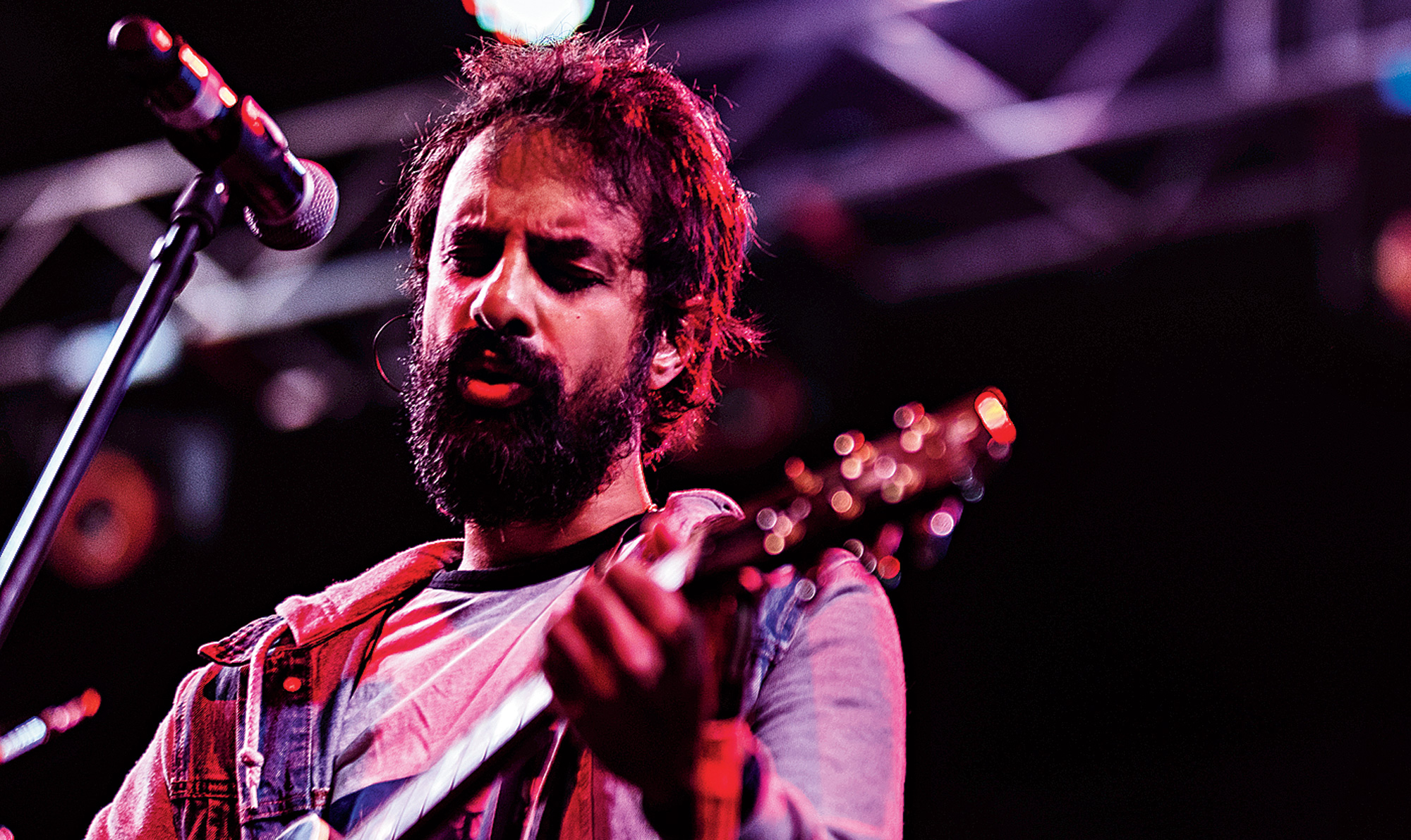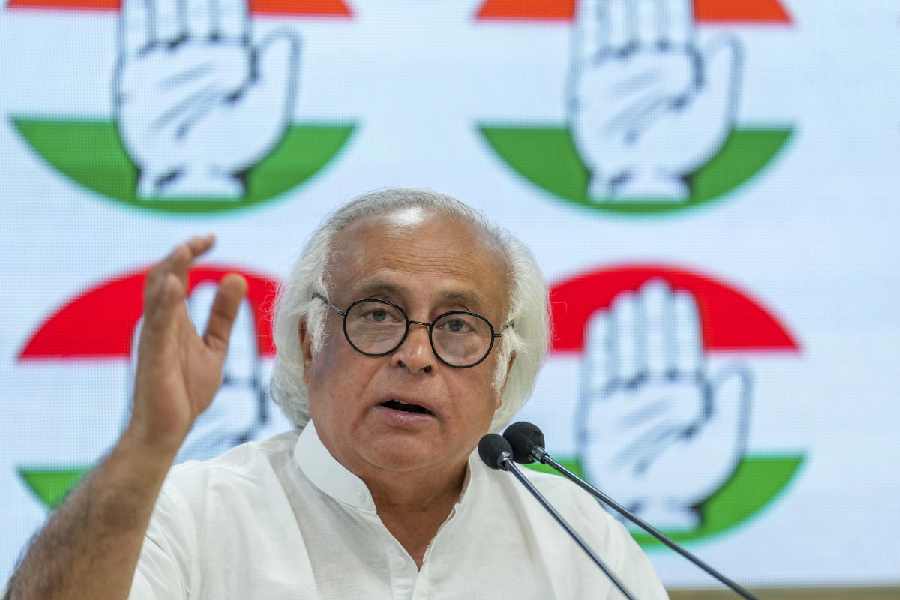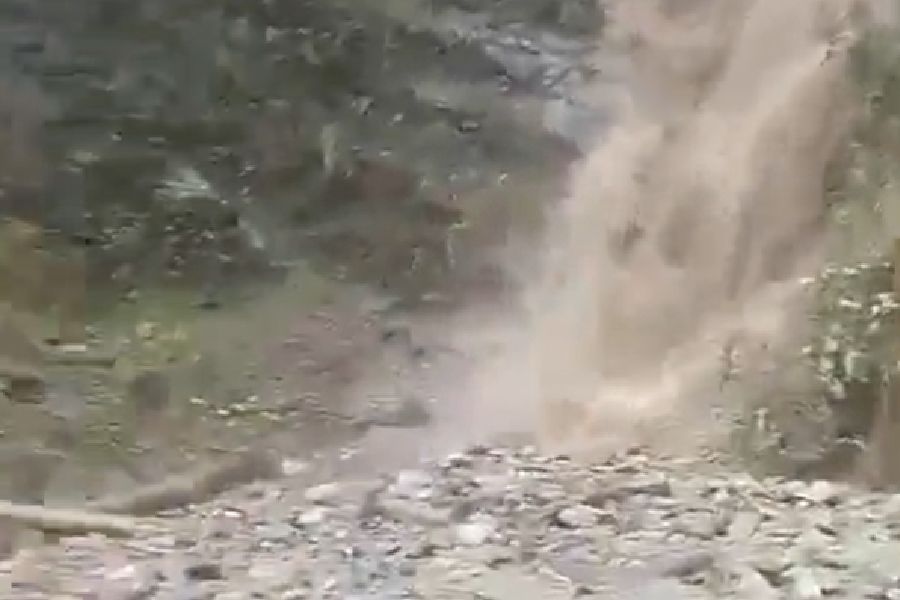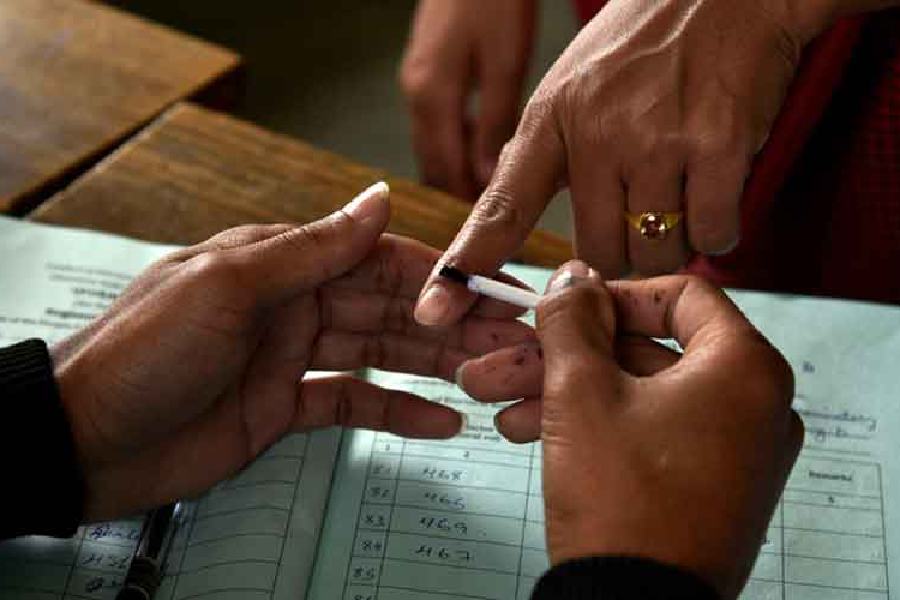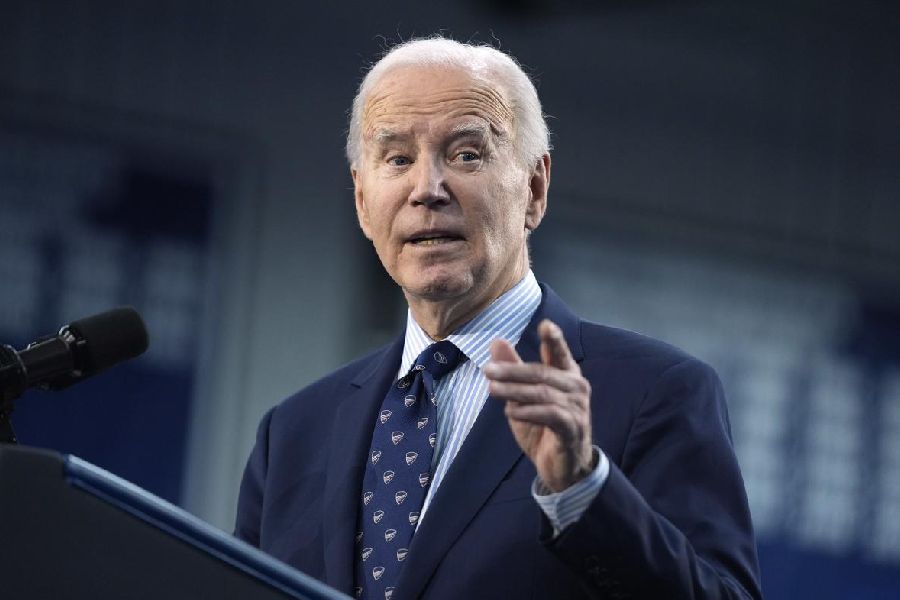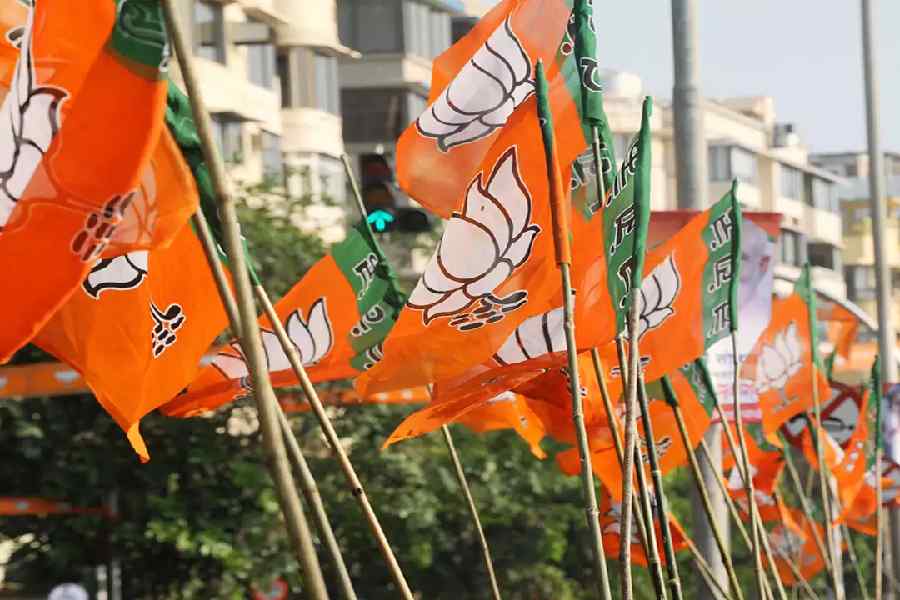Given his “love for words”, Ankur Tewari turns out to be a man of measured words during our crisp 30-minute chat, as he ends every answer with a “yeah” — cue for me to move on to my next question. But fresh, or rather still enjoying the success of the raging 18-song, 47-minute soundtrack of Gully Boy, Ankur, the music supervisor of the film, is also surprisingly nonchalant, perhaps a trait that stems from his own admission of being “minimal” — “You must see my computer desktop. It has only one folder!” Yet this man is behind the big fat collaborative Bollywood soundtrack with over 50 artists and is now quietly enjoying the success behind the scenes as he continues making music and performing with his band, Ankur & The Ghalat Family. Excerpts from a t2 chat:
One thing I am really curious about is “music supervisor”, which is what the credits of Gully Boy denote you as. What does that entail?
It mainly entails lining the whole palate for the film. Like you have a production designer, I would describe it as somebody who does the sonic design of the film. So it comes from reading the script, understanding it and then trying to get a sound design for the whole film in terms of not what a sound designer does but musically, what it should sound like — from when it begins to even small pieces that come into the sound, what kind of music will be playing in the background somewhere even when the characters are talking, apart from the background score. So it’s like basically designing the whole musicscape of the film.
The 18-song soundtrack has been receiving a lot of praise. But it is quite different from your signature acoustic melodies. What kind of homework did it take for you to get it right?
A lot of homework was involved. Though it’s not the kind of music that I do personally, I had done a stint with MTV Indies, a few years ago and during that, I had interacted with a lot of the musicians that got involved in Gully Boy. So I knew of the world and was damn curious about it; so my homework was going on for a few years, naturally not knowing that it could lead to me contributing to the film. Also, when you play music festivals and venues, you end up sharing the green room with a lot of these musicians who also ended up being a part of this. So I knew some of them personally, some I found while working on the film but it helped that I was curious about the Indian hip-hop scene, especially the part of it that stemmed from Mumbai, much before I became part of the film. But still there was homework to be done in terms of what kind of material they had on their hard drives and on their writing pads, and to work with that to create something unique.
So I am guessing it did not take much convincing on Zoya Akhtar’s part to get you on board?
Not at all! Zoya is a very dear friend and as an artiste, I really respect her. We have been sharing our work with each other for quite some time. She writes something new, she shares with me and I write something new, I share it with her; just because we respect each other as artistes. I, actually, have been following her work even before I knew her, many years ago. So when she approached me, I knew that it would be challenging but good fun and I’d have some learning from the project as I went with it.
The soundtrack has so many collaborations and the onus of stringing all of that together was on you. What was the difficult part in that?
When we started the project, everyone who was involved was very passionate about it from the word go because they all believed in the written word that was in the script and the screenplay was amazing. In fact, I have saved my copy of the screenplay and I am going to read it a few years later. Having said that, we all kind of jumped into it. I, frankly, had no idea about the scope of work and the fact that I would be collaborating with so many musicians. I just went with the flow and we almost worked one-and-a-half to two years on the music and it ended up being a big collaboration. I realised how many people we were working with only after the music got done and I was getting into the more technical stuff of collecting the various stems, providing them to the Dolby people and the final details at the end when we were mixing and mastering the songs. That part was a little difficult because there were so many people involved. Otherwise, usually, in a film, you just go to one place and get everything there. So there was a lot of coordination on the phone and my team worked really well with me on that and I also had a really amazing assistant who helped me in coordinating stuff. The fun part was creating but collecting and coordinating — the last lap of the marathon — was tough.
How was it working with Ranveer Singh, since a part of his work would overlap with yours anyway, by virtue of the nature of the film. Was there ever a point of hesitation, given his larger-than-life persona?
The first time when Zoya proposed that Ranveer would do it, I was a bit apprehensive because of the same reason that you said. But then I met him and we jammed a few times and then he said that he would go and prepare and he proposed that he would audition for the part to sing his own parts and rap his own lines. He did his preparations so well that by the time he came, he had become Murad by then. It was quite stunning to see him transform into this completely different person. Usually, when you see a lot of film actors who work on their bodies and they lose and gain weight and muscle, that way, it was interesting to see that even musically, the way he rapped or how he found his own rhythm after his prep, was the same kind of transformation, if I were trying to give you a visual sense of what Ranveer did for the film. From that point onwards, the collaboration was smooth as silk because he was quite receptive to ideas and he came into the studio knowing what his strengths and weaknesses were and he worked on the latter and put forward his strength wherever we could use it.
Going back to the kind of music you make, how would you describe your sound?
I try to take a very minimal approach to music and try to not overcrowd it — actually, I am scared of doing that because somewhere, I am scared that I am not a trained musician. Whenever there is more than I can understand, I have to let go of that and I rely heavily on my words because I feel that I can communicate through them better than I can through my music. And that kind of reflects in Gully Boy as well because in it too, we were specific in terms of what is being said and what are the words that are there and make the sound authentic, simple and not too complex. I feel that in today’s time, we give a lot of importance to music and less importance to words. So I try and counter my lack of knowledge in music with my words.
Who are some of your influences and some of the people you have grown up listening to?
My influences are not just limited to songwriters. It could be books that I have read or people I have met. You never know what inspires you. It could be even a word that you hear on the radio or even a phrase that you hear on the train. As an artiste, my radar is always on and trying to always collect material that can be used in a song later. I have grown up listening to a lot of The Beatles, Pink Floyd, Mehdi Hassan, Jagjit Singh, Kaifi Azmi and Sahir Ludhianvi. In terms of books, you have (Charles) Bukowski’s works and Premchand. It could also be an article written by a young blogger on the Internet that can inspire you.
So it’s love for the written word…
Love for the word, I think. Even if it’s spoken, I am okay with it.
Was it a conscious decision to make Hindi music? Were you planning this for Bollywood?
I write in Hindi because I think in Hindi and that’s where I am the most natural. If I am at a heightened state of emotion, I naturally start speaking in Hindi. I would say Hindustani and not even Hindi is my first language. The thoughts and feelings come to me in Hindustani. So there was no plan but if you’re saying this could be a plan, I’ll think about it! (laughs)
What do you think about the present music scene in the country?
I have always felt that the music scene is amazing in India, just that now, the spotlight is on many more people, than it was earlier. For instance, in Gully Boy, I didn’t need to pretend to be someone else. I could just get the best person to do that job. I think you were already listening to so much — you were listening to drum and bass and ghazals at the same time. For me, I only classify music as the music I like and that I don’t. And the music that I like has different genres as a part of that playlist.
Even the music you have scored and performed for Bollywood films is very you…
Because there’s only one me so I feel that the most I can contribute to anyone is by being more me than being someone else. I can’t make a lot of music that other people make and they are so good at it. Like Shankar-Ehsaan-Loy; Vishal and Shekhar, Pritam and even other contemporary musicians like Parekh & Singh, Prateek (Kuhad) and Medieval Punditz in Delhi, Karsh Kale in New York and so many in Goa nowadays too — I mean, they’re so good at their work and you’re always in awe of such musicians. I feel that they are the best versions of themselves so there’s no point in trying to do what they do. If they’re saying that that is them then this is me saying from my little corner that this is me and that is the kind of communication that’s happening with artistes, which is very interesting.
Coming to Ankur & The Ghalat Family, how has that been going?
I love collaborations and working with people who have something to offer to me as well. And with my bandmates, they are all amazingly talented — Gaurav (Gupta) to Sidd Coutto, Johan (Pais) and Vivaan (Kapoor) — they are so talented and there’s so much to learn from them! You know when I make a piece of music, I kind of write the words and a basic melody and take it to them and they almost fill that body with soul and music, which I feel I can’t do myself and they really contribute so much that it amazes me. So in my band, it’s like a constant collaboration and it’s like university for me where I go and learn new tricks and ways to approach music.
How do you balance your solo projects, the travelling and the band?
I have no idea! (laughs) I don’t think too much.
So you take it one day at a time?
Actually half-an-hour-at-a-time sort of a guy!
You have said this before and it kind of stuck with me that you are a slow person and take time to make your music…
It’s like eating for me — I have a problem with it because I eat very fast and don’t enjoy eating as much as many friends who really eat slowly and enjoy every bite. But that’s what I do with music. I like taking time with it and then it brews and brews and brews and then at some point, a voice tells you to abandon it and it becomes whatever it becomes. Deadlines are nice as well but I don’t measure time in days and hours and seconds — it’s just that sometimes you get into a space of working and a moment can stretch to a lifetime.
Quick five
Favourite Gully Boy song?
Asli hip hop — it wasn’t supposed to be a song, it was just supposed to be a scene but it was so powerful that I had to get those guys back in the studio and record it. They did three takes and I chose one and as it was fading out, the beatboxer gave a deep bass... so it’s a song with probably 15 voices and only one note that happens twice. I relate to it because it’s minimal, has great words by Spitfire and he’s just 19!
Favourite musical/music-oriented film?
The Sound of Music and Chitty Chitty Bang Bang
Favourite poems?
Right now, it’s Javed (Akhtar) saab’s Ek Hi Raasta, which he wrote for Gully Boy
Two things without which you can’t make your music?
My pen and paper
If you were to write a song on your life at this point, what would you call it?
The Beatles’s When I’m Sixty-Four
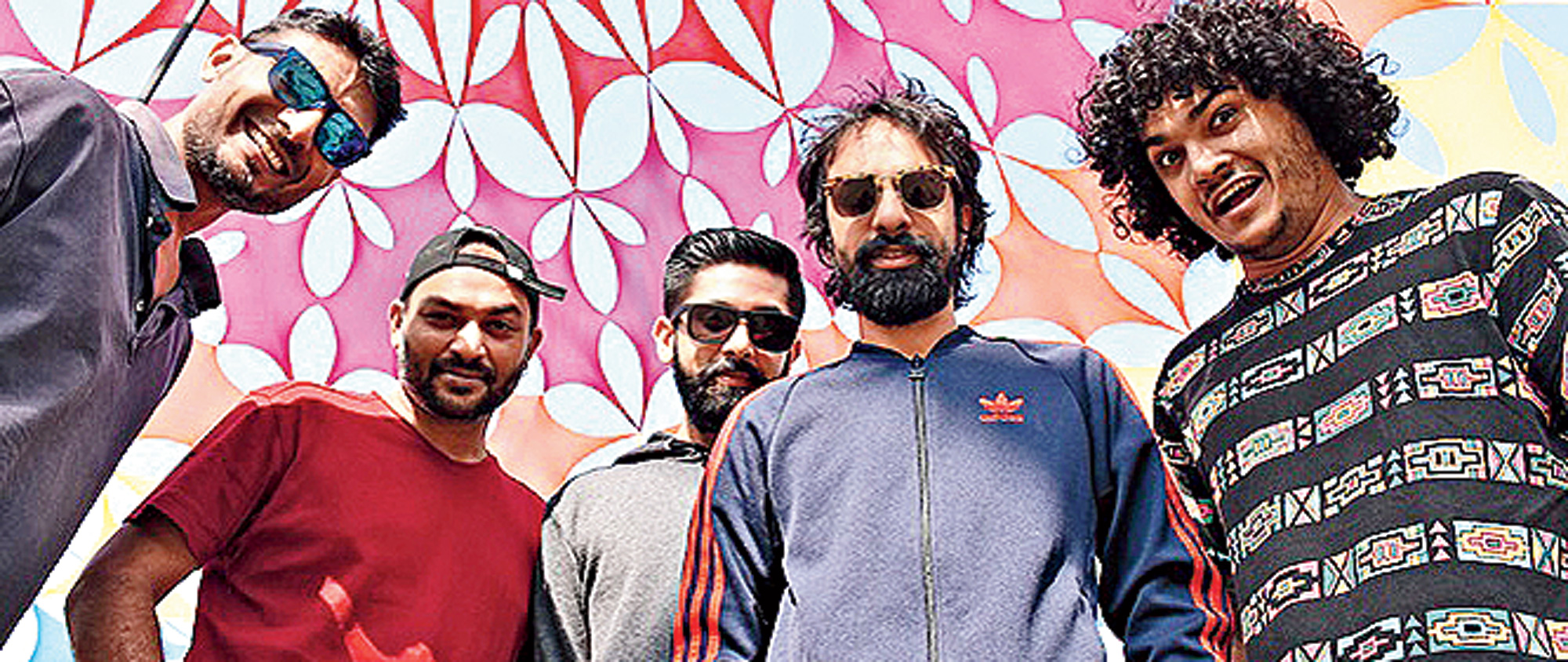
Ankur & The Ghalat Family is known for its “Urdu and Hindi easy acoustic ballads folk rock/rock ’n’ roll”. Ankur Tewari

